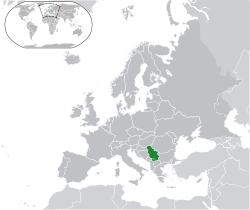Serbia Awaits Toughly Worded EU Report
By Bojana Barlovac
Brussels is expected to say that Serbia’s progress toward EU membership has been limited – and that it is postponing opening of accession talks at least until the end of next year.
The October progress report is likely to say that with this year’s general elections and delays to the formation of a new government, Serbia has wasted precious time on making progress on a number of key issues, an EU diplomat told Balkan Insight.

For these reasons, Brussels is likely to postpone a decision on whether to offer Serbia a date for a start to accession talks, he added.
The report is due to be presented to the Serbian government on October 10.
Key issues likely to be highlighted in the report include normalisation of relations with Kosovo, which Serbia does not recognise as a state, judicial reform, the fight against corruption and protection of human rights.
According to the source, Brussels will also criticize Serbia’s Law on the National Bank, which the new government adopted in August and used in order to dismiss the bank governor, Dejan Soskic.
The report will also negatively assess changes to the law on Serbia’s northern province of Vojvodina, he said.
Brussels is expected to welcome Serbia’s pledge to start implementing deals agreed with Pristina in the EU-mediated talks in Brussels, the same source continued.
On Monday, Belgrade told Brussels that it is ready to implement an agreed deal with Kosovo on joint control of the border.
However, Serbia will be reminded of the need to resume talks with Kosovo, which stopped for Serbia’s May elections.
It will also be asked to resolve issues with Kosovo about telecommunications, energy and Belgrade-run so-called parallel institutions institutions operating in northern Kosovo.
Serbia obtained official EU candidate status in March 2012. But obtaining a start date for negotiations is bigger step, requiring consistent implementation of reforms and control of their implementation.
